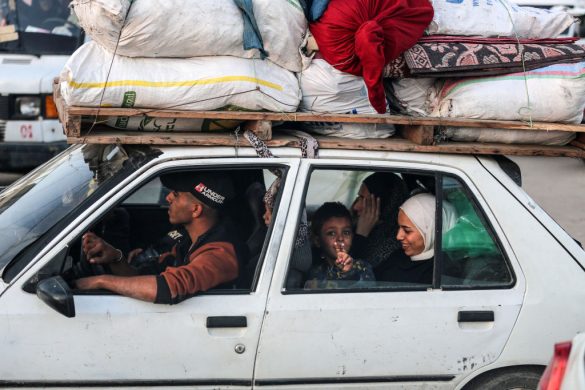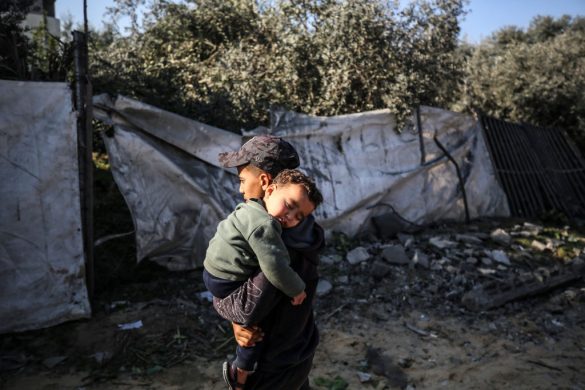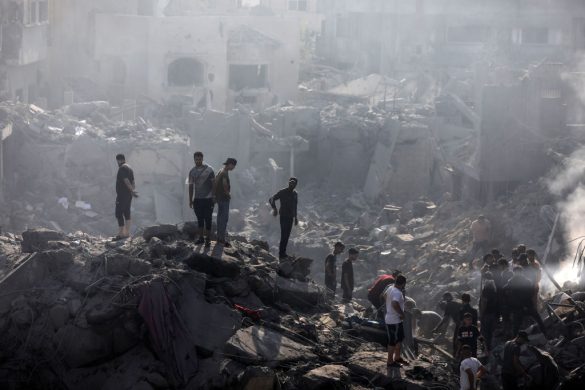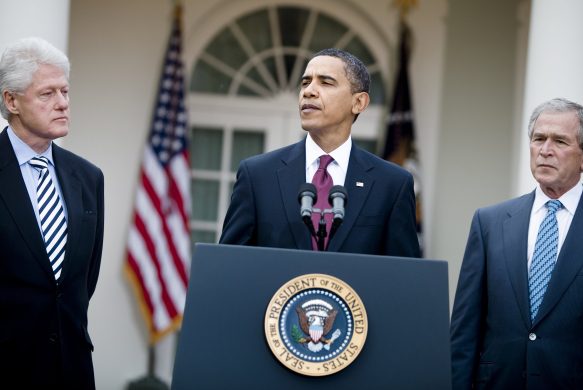Antallet af mennesker fra landene på Afrikas Horn, der søger mod Golf-staterne er stigende. Mange strander i Yemen og bliver udsat for overgreb og udnyttelse.
Yemen, 16 april 2013 (OCHA): Increasing numbers of migrants who travel through Yemen en route from the Horn of Africa to the Gulf are suffering severe abuse and exploitation. Tens of thousands are stranded at the Saudi border. Humanitarian agencies are supporting them but funding shortages threaten to cut off this lifeline.
Aid organizations estimate that at least 50 people arrive daily in the northern town of Haradh, which is located close to the Saudi Arabian border. About 90 per cent of them are men in search of job opportunities in the Gulf States.
Influx doubled
The influx of migrants and refugees from the Horn of Africa, especially Ethiopia and Somalia, doubled from around 53,000 in 2010 to over 107,000 last year. Many risked their lives crossing the Gulf of Aden by boat to reach Yemen’s shores. The UN Refugee Agency estimated that more than 100 migrants either drowned or went missing in 2011 while making the crossing. But thousands of people continue to leave the Horn of Africa with hopes of a better life on the Arabian Peninsula.
“In a desperate attempt to seek better opportunities, many migrants have suffered gross physical abuse and severe economic and sexual exploitation,” said Humanitarian Coordinator for Yemen Ismail Ould Cheikh Ahmed. “Many of them, including children, are stranded under extremely difficult circumstances.”
In border towns like Haradh, the migrants live rough, often sleeping in the open without enough food. Some 25,000 migrants are stranded in the town after failing to make their way across the border, according to the International Organization for Migration (IOM), which provides food, shelter and medical assistance to them at its Migrant Response Centre in Haradh.
“The border is manned by heavily armed guards,” said Tadese (not real name), who was originally from Oromia in Ethiopia but is now stranded in Haradh. “It took us days to reach the border, but we could not cross into Saudi Arabia. All I want now is to go back home.”
Vulnerable to smugglers and traffickers
As a signatory to the 1951 Refugee Convention, Yemen provides a formal protection framework to refugees. However, migrants have become progressively more vulnerable to abuse and extortion by smugglers and traffickers along the Yemen-Saudi Arabia border.
At the Yemen Red Crescent clinic, migrants tell stories of torture, rape and harassment. Many say they want to return home, but are not able to. Others seeking treatment here and at the Migrant Response Centre were rescued form unscrupulous kidnappers, traffickers and smugglers. Many of them have sustained injuries, including broken limbs. According to IOM, there have also been reports of organ trafficking.
“Humanitarian agencies that are providing assistance need to be supported but these agencies are currently facing very serious funding shortages,” warned Mr. Ould Cheikh Ahmed.
In January, funding shortages forced IOM to significantly reduce its free meal programme at the Migrant Response Centre from 3,000 meals a day to 300. The limited meals were only given out to the most vulnerable migrants and refugees – women, the elderly and unaccompanied minors. Shelter and medical referrals were also reduced, resulting in increased hardship and illnesses. Many bodies of migrants are unclaimed at Haradh hospital morgue.
The IOM has suspended its voluntary repatriation programme for those who want to return home, due to lack of funds. The last flight to carry migrants from Yemen was in September 2012, when 210 migrants went back home to Ethiopia. OCHA is currently working with IOM to raise awareness about the plight of the migrants and mobilise resources to assist them. A recent donation from the OCHA-managed UN Central Emergency Response Fund of US$1.4 million and food assistance from the World Food Programme is expected to keep the Migrant Response Centre running for the next six months, but operations after that are uncertain.















